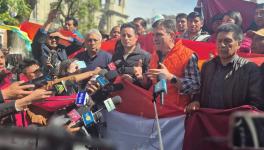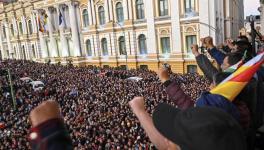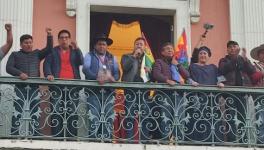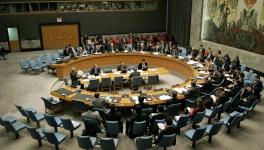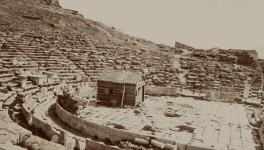Ballots Defeat Bullets: Socialist Party Wins Historic Mandate in Post-Coup Bolivia
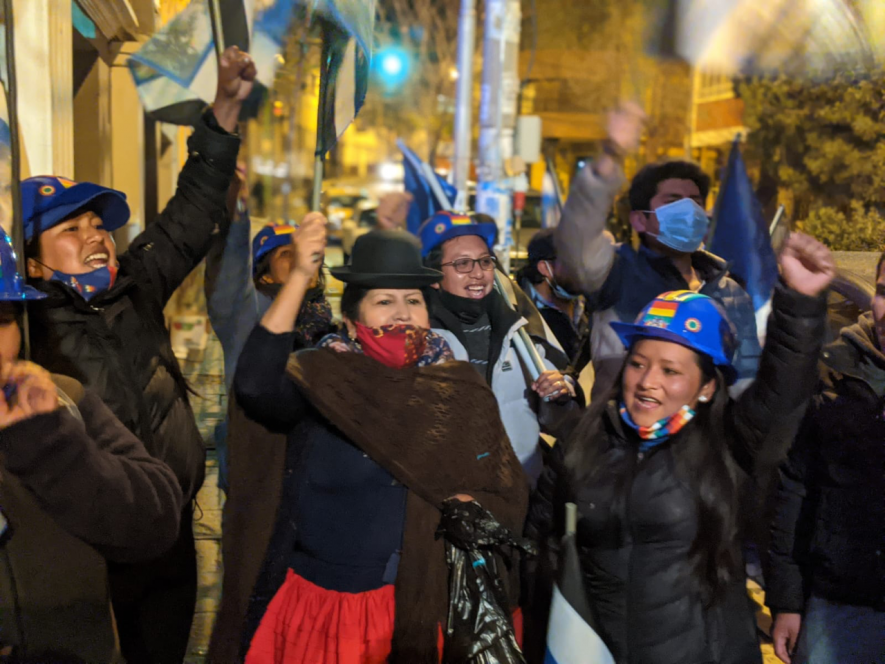
MAS supporters celebrate election victory in La Paz. Photo by Thomas Becker.
Against all odds, the Movement Toward Socialism (MAS) party won the October 18 elections in Bolivia with 55.1% of the vote. This is better than even Evo Morales’ performance in 2005 with 53.75% support. It gives MAS President-elect Lucho Arce one of the biggest mandates in Bolivian history, and is in part a major endorsement of MAS policies and its 14 years in power.
The election took place a year after a coup overthrew former MAS President Evo Morales and installed right wing Senator Jeanine Áñez in power. Under Áñez and her notorious government minister Arturo Murillo, the government repressed dissidents and anti-coup activists, killing dozens and wounding hundreds of people in massacres in Sacaba and Senkata cities in Bolivia last November. They politically persecuted MAS figures, allies, and leftist activists over a tumultuous year leading up to the recent elections.
The MAS victory is a rejection of the racist government installed by the coup. Áñez pushed the MAS down, but the party and its diverse base of supporters rose up and won.
The movements defending democracy over this past year brought Bolivia to this historic moment. For weeks in August, massive road blockade protests organised by MAS-allied campesino, indigenous, and labor groups successfully pressured authorities to hold elections after months of delays.
Following its resounding victory at the polls, the MAS will enter government next month, raising many crucial questions. One of these questions is -- how much will the party leadership change? The crisis of the past year has resulted in a diversity of new leadership rising up through the party ranks. For example, young MAS cocalero leaders Andrónico Rodríguez and Leonardo Lozawere were just elected as senators in Cochabamba.
How will the MAS address critiques from the left? Vice President-elect David Choquehuanca is largely considered a representative of the more critical left-wing of the MAS party, which is oriented more directly by the grassroots base of labor, campesino, and indigenous organisations. This is a sign that the MAS leadership may strengthen its relationship with its bases, and further democratise the party’s ties to social movements.
What will be Evo Morales’ role? Following the electoral victory, President-elect Arce said that Morales will not have a role in the new government, but he is welcome to return to Bolivia from Argentina, where he took refuge following last year’s coup.
Will the right accept political defeat in the government and streets? Presidential candidate Carlos Mesa, Áñez, and the Organization of American States all notably accepted the MAS victory. However, the right-wing Comité Cívico pro Santa Cruz, coup leader Fernando Camacho, and other anti-MAS groups have rejected the MAS victory. Considering the actions of racist and paramilitary groups in the country over the past year, it is likely they will continue to foment unrest in Bolivia.
These are major questions guiding the coming months. The fact that they will be addressed with the MAS in power makes all the difference.
The MAS has adapted to and overcome incredible challenges this year. Now they will have to navigate the disastrous pandemic, rising fascism in the country, and an economic downtown. They have a historic mandate to carry out this work on behalf of all Bolivians, not just the oligarchy and racists who were just defeated at the ballot box.
Dr. Benjamin Dangl teaches journalism and communication in the Department of Community Development and Applied Economics at the University of Vermont. He has worked as a journalist throughout Latin America, and conducted research in Bolivia earlier this year. He has written three books on Bolivia, most recently The Five Hundred Year Rebellion: Indigenous Movements and the Decolonization of History in Bolivia (AK Press, 2019).
Get the latest reports & analysis with people's perspective on Protests, movements & deep analytical videos, discussions of the current affairs in your Telegram app. Subscribe to NewsClick's Telegram channel & get Real-Time updates on stories, as they get published on our website.









